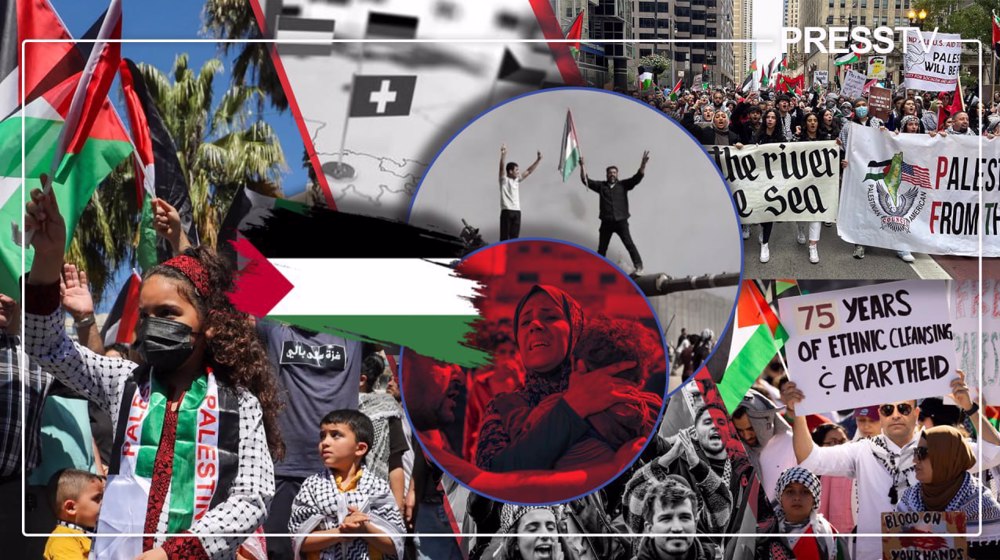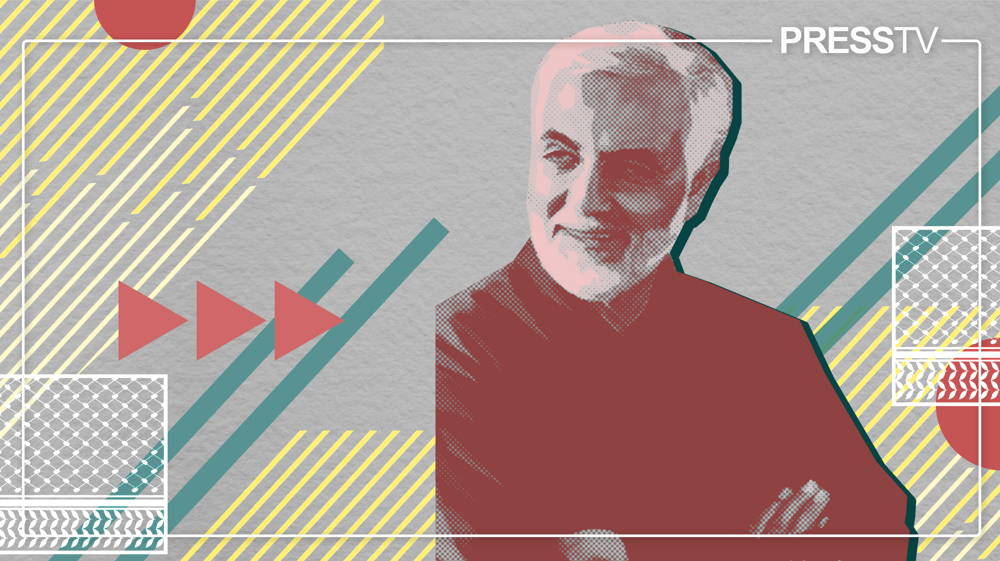Iran N-deal and future of ties with Eurasia
Since the Islamic Revolution in Iran, which overthrew the dictatorship of US-backed Shah in 1979, a constant in US foreign policy has been an unrelenting hostility to Iran. Washington supported Iraq’s former dictator Saddam Hussein´s war against Iran (1980-1988). In 2003, the Bush administration prepared plans for war with Iran. Since 2011, the US and its European Union allies have subjected Iran to the toughest economic sanctions regime in history.
However, the US strategy has changed in recent years. After the failure of the US wars in Afghanistan and Iraq, where Washington has been unable to defeat the insurgencies or persuade the governments of these nations to submit to its diktats, US public and political establishment do not want to see the country drawn into new conflicts in the Middle East.
At the same time, Washington is wary of the rise of China in the Asia-Pacific region and the world. Obama has approved the new “pivot to Asia” strategy which seeks to confront China´s growing role in the region, where the US is trying to build a new anti-Beijing alliance. The pro-US Australian executive and Shinzo Abe´s government in Japan, which is determined to play a more assertive role in Asia and seeks to scrap the so-called “pacifist clause” in the Japanese constitution, have become US natural allies in this strategy.
The Ukraine crisis has also pushed the United States and its NATO allies into a strategic and political confrontation with Russia. Moscow has taken measures to strengthen its military power, including the development of new warships, warplanes and nuclear missiles. It is also promoting the Euroasian Union with some close allies such as Belarus, Kazakhstan, Armenia and other countries.
Iran is a central player in this game. A big and populated country, Iran has the second gas and third oil reserves in the world. Its geostrategic position is unique. It links Central Asia with the Middle East and the Persian Gulf. It has built a strong alliance with some countries of the region, including Syria, Iraq and Lebanon. Millions of Muslims in the world also follow the Leader of Islamic Revolution Ayatollah Seyyed Ali Khamenei and other Iranian religious leaders. Iran’s relations with Africa, Asia and Latin America are becoming increasingly important.
For decades, the US, which has always known that Iran has no intention to build nuclear weapons as evidence shows, has used this issue to pressure Iran and try to curb its technological and economic development. Now, the situation in the world has changed and the US is trying to bring the issue to its real perspective. The nuclear dispute with Iran has become a burden for the US because it prevents it from putting into practice its anti-Chinese and anti-Russian strategy and thus it had to be solved.
Iran has also become the bulwark of anti-terrorist fight in the Middle East. Tehran is supporting Iraq, Syria and Lebanon against the terrorist aggression which is being fueled by Saudi Arabia, Qatar and Turkey. Western countries have supported for years the effort of these countries to use terrorists as proxies in their war against Iran-friendly governments in the region, but now they fear the growing threat of these groups, which are determined to hit Western countries. Some Western governments and media are already changing their stances towards Iran and Syria and starting to look for cooperation with them in this fight.
At the same time, US companies are eager to enter the Iranian market. They see Iran as a new El Dorado, where huge benefits can be got. Until now, Chinese and Russian and, to a lesser extent, European companies are much better positioned to take advantage of the lifting of Iran sanctions. US companies are trying to change this situation and return to Iran but they need Washington to scrap unilateral sanctions in order to achieve this goal.
Meanwhile, the Israeli influence and the Zionist Lobby´s pressure on Congress have become a main obstacle for the implementation of this new strategy. They have a great influence on US foreign policy but this time their interests clash with those of an important part of US political and military establishment and those of US big corporations. This could make them lose their battle against the Iran deal. In an open challenge to the Zionist Lobby, corporate media outlets, such as the New York Times or the Washington Post, are supporting the nuclear agreement and are openly saying that an accommodation with Iran would strengthen the US´s hand against its most important and formidable geo-strategic rivals, Russia and China.
A recent article in the New York Times co-written by Michael Gordon and David Sanger, both senior writers with close ties to the US military and intelligence establishment, supported the Iran deal. They claimed that an accommodation with Iran could strengthen US world position against Russia and China in multiple ways.
China is now Iran´s biggest economic partner and the most important investor. Russia has long been Iran´s biggest arm supplier. However, this partnership took a hit in 2010 when Moscow refused to deliver on a contract to supply S-300 ground-to-air missiles to Tehran citing UN sanctions. Washington hopes that the nuclear deal and the need to cooperate against terrorism will allow it to contest for geopolitical and economic influence in Iran with the goal of neutralizing Russian and Chinese influence in this country.
The US still needs Russia and China as mediators in its communication with Tehran and it is becoming increasingly problematic for Washington to rely on Moscow and Beijing in this effort at a time when relations are worsening.
Russia and China´s response
There is no doubt that China and Russia understand this danger and have taken measures to keep their influence in Iran.
In January, during a visit of Russian defence minister, Sergey Shoigu, to Tehran, the two sides signed a new military cooperation deal. In explaining the deal, Iranian Defense Minister Hossein Dehqan said Iran and Russia have a “shared analysis of US global strategy and its interference in regional and international affairs” and they highlighted the need to cooperate in the struggle against terrorism.
Some hours after the announcement of the Lausanne deal, Igor Korotchenko, who heads the Global Arms Trade Analysis Center think tank in Moscow, told Sputnik that “the lifting of sanctions on Iran, including the arms embargo, would be an absolutely logical thing to do”. “Of key importance to us is the delivery of upgraded S-300 missiles to Iran… A contract to this effect could be resumed on terms acceptable to both Moscow and Tehran”, he added.
Russia says it is also willing to sell automobiles, aircraft, and ships to Iran after the removal of sanctions against the Islamic Republic. “We are interested in supplies to this country. This concerns the automobile, aircraft, shipbuilding, and other industries,” Russian Industry and Trade Minister Denis Manturov said in the city of Khabarovsk in eastern Russia, Interfax reported. “We are prepared to work together on conditions of cooperation and joint projects,” he noted.
For his part, Chinese foreign minister, Wang Yi, visited Tehran in February in order to increase the economic and political links between both countries. Chinese oil imports from Iran increased by nearly 30 percent last year and Wang said that there was still “enormous space for cooperation on energy and industrial projecs”. “China is willing to encourage even more Chinese companies to invest in Iran and build factories via the joint development of industrial parks in accordance with Iran´s development needs and China´s ability,” Reuters quoted him as saying.
Wang will visit Moscow in April and the two countries will analyze the situation after the achievement of the Iran deal and measures to prevent the US from increasing its influence in Eurasia.
Russia and China can now also open the door to Iran's accession to the Shanghai Cooperation Organization. This big organization seeks to guarantee stability, promote the unity of Eurasia and counter US influence in this large space.
YF/GHN
Gaza death toll 40% higher than recorded, Lancet study estimates
VIDEO | Lebanon elects new president
Scores killed as US, Turkish proxies clash in northern Syria
At least 5 dead as wildfires devour districts across Los Angeles
VIDEO | Press TV's news headlines
Houthi: Israel incapable of downing Yemen’s hypersonic missiles
Inquiry: UK soldiers executed Afghan boys 'younger than 16'
Palestinian dies due to medical negligence he faced in Israeli prisons










 This makes it easy to access the Press TV website
This makes it easy to access the Press TV website